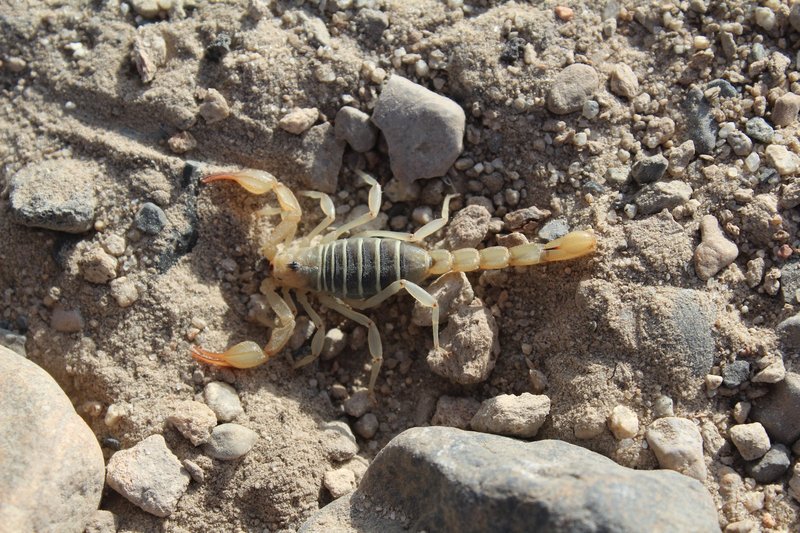
Imagine wanting a scorpion buddy, kind of like how some folks dream of having a pet snake or tarantula. It’s exciting, but just as you’d check local laws for those critters, you need to do the same for scorpions. Laws can vary wildly from one place to another—sometimes even between states. So, let’s dig into what you need to know about keeping scorpions as pets around the world.
Different Countries and Their Laws on Scorpions
Scorpions aren’t all that common in the pet trade, primarily due to their reputation and the misconceptions surrounding them. But interestingly enough, laws about keeping scorpions vary greatly by country. In some places, they’re totally legal pets; in others, they fall under strict regulations or outright bans.
For example, in the United States, most states allow common species of scorpions as pets. You’ll find the Emperor Scorpion and the Desert Hairy Scorpion among the favorites due to their docile nature. However, specific states like California and Hawaii have their own sets of rules. California, for instance, prohibits keeping certain species known for their venom.
Meanwhile, in countries like Australia, keeping exotic pets, including scorpions, is heavily regulated. Some species are completely banned due to environmental concerns. In many parts of Europe, it’s similar—while scorpions may not be outright illegal, many species require permits or special licenses.
State-by-State Breakdown in the U.S.
We’ve established that laws can be very different across borders, but let’s zoom in on how these laws play out in the U.S. Each state has its own regulations, and things can change pretty quickly. Here’s a simple rundown:
- California: As previously mentioned, certain species are banned, particularly the more venomous ones. However, many household scorpions are still permitted.
- Florida: Generally, scorpions are legal here, but it’s wise to check the local wildlife regulations for specifics.
- Texas: Scorpions are legal, and many Texans actually raise them as pets. Just keep an eye on species that might be illegal to import.
- New York: While many reptiles and exotic pets are regulated, scorpions are generally allowed, but you should verify local laws.
- Hawaii: Here, you won’t find scorpions allowed due to strict regulations on non-native species. If catching a scorpion is your goal, you’ll have to visit the mainland!
Understanding the specific laws in your state can save you a lot of trouble down the line. Reaching out to local wildlife authorities is always a good idea if you’re unsure about what regulations apply to you.
Common Scorpion Species for Pet Owners
If you’re thinking about keeping a scorpion, it helps to know which species are commonly kept as pets. Let’s look at a few popular types:
- Emperor Scorpion: Known for their gentle nature, they can grow to about 8 inches long and are stunning with their glossy black exoskeleton.
- Desert Hairy Scorpion: This species is popular for its hardiness and tolerance of a range of environmental conditions.
- Asian Forest Scorpion: These scorpions are similar in temperament to the Emperor Scorpion but tend to be a bit smaller.
While these species are typically considered safe for beginners, it’s always important to remember that even the friendliest scorpions have venom. Understanding how to handle them and creating an optimal habitat is key to keeping both you and your scorpion happy.
Creating a Safe Habitat for Your Scorpion
Once you’ve determined that scorpions are legal to keep in your area, it’s time to think about their habitat. Scorpions need specific conditions to thrive. Here’s what you’ll want to consider:
1. Enclosure: A glass or plastic terrarium that ensures proper ventilation is ideal. Make sure it’s not too big, as scorpions appreciate a cozy space.
2. Substrate: Use coconut fiber or sand to simulate their natural environment. This also helps with humidity control.
3. Temperature & Humidity: Most scorpions like a warm environment—around 75-85°F is often ideal. Humidity should be about 30-60%. Regularly check your habitat with a thermometer and hygrometer.
4. Hiding Spots: Include rocks, logs, or artificial plants where they can hide. Scorpions are nocturnal and love to burrow and hide during the day.
This setup will not only make your scorpion feel more at home but will also help you enjoy observing its natural behaviors.
Handling Your Scorpion Safely
It’s important to know how to handle your pet scorpion safely. While scorpions are generally more about self-protection than aggression, mishandling can lead to a sting. Here are tips to keep yourself safe:
– Use Tongs: It’s best to use feeding tongs to offer food and handle them whenever possible. This keeps your fingers at a safe distance.
– Avoid Stress: Handle your scorpion only when necessary. Stress can lead to defensive behavior.
– Watch For Signs: If your scorpion starts to raise its tail or shows signs of agitation, it’s best to leave it alone.
You might be wondering if you could train your scorpion or get it to do tricks. The answer is no—scorpions don’t have the capacity for training like dogs or cats do. But observing their natural behaviors can be incredibly rewarding!
The Ethical Considerations of Keeping Scorpions
While keeping scorpions can be fun and educational, it does raise ethical questions. Here’s what to think about:
– Sourcing: Always buy your scorpion from a reputable dealer. Avoid wild-caught specimens to help protect local ecosystems.
– Commitment: Scorpions may live anywhere from 3 to 10 years, depending on the species. Ensure you’re ready for a long-term commitment.
– Care Needs: As with any pet, scorpions require proper care. This includes feeding, maintaining their habitat, and monitoring their health.
By taking these factors into account, you can create a fulfilling environment for both you and your scorpion.
Keeping a scorpion as a pet can be an exciting and unique experience. Just make sure you know the legalities of owning one in your area, select a species that suits your lifestyle, and create a comfortable habitat. Scorpions may not be for everyone, but if you’ve got a fascination for the unique, they can be a rewarding companion.
So, take your time to research, connect with other scorpion enthusiasts, and dive into the captivating world of these ancient arachnids. You might just find that having a scorpion roommate is an experience like no other!

